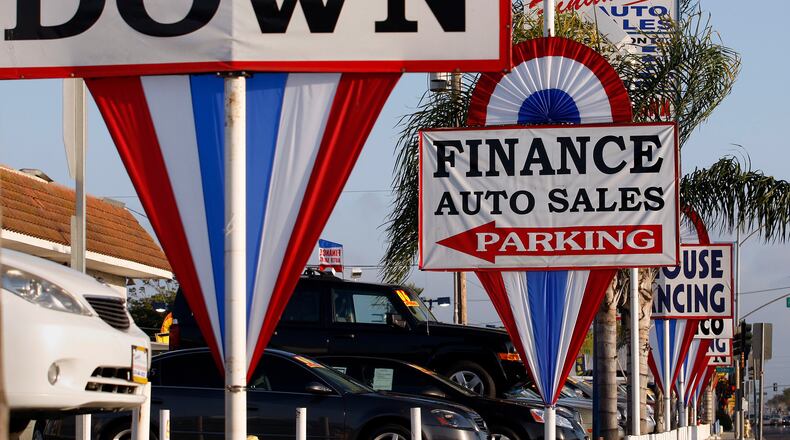The Senate Finance Committee approved legislation Monday that could mean a $200 million a year tax hike for used-car buyers.
Supporters of House Bill 340 by Rep. Shaw Blackmon, R-Bonaire - which is backed by new-car dealers - view it as cleaning up a loophole that currently allows used-car dealers to get an unfair competitive advantage on taxes and to sometimes scam the system.
Who ultimately wins one of the General Assembly’s hottest business battles — over how cars are taxed — probably won’t be decided until the final days of the General Assembly’s session. The measure now goes to the full Senate for a vote.
State estimates say that by fiscal 2019 — the first full year the law would be in effect — the proposed changes in how used cars are taxed could mean an extra $237 million in title fee payments. That could rise to $268 million by 2022.
Another part of the legislation would lower the bill on the same tax to those who lease cars, cutting their tab by up to $74 million in 2019, a number that could grow up to $106 million by 2022.
Combined, the Georgia Automobile Dealers Association (new-car dealers) and the Georgia Independent Automobile Dealers Association (used-car dealers) have contributed about $1.1 million to the campaigns of lawmakers and top state officials in the past decade.
Lt. Gov. Casey Cagle, the Senate president, plays a key role in what gets passed in the session's final days, and his campaigns have received more than $31,000 from the new-car political action committee, which supports the bill. The car dealership PAC is one of Cagle's largest political backers.
The used-car dealers lobby, which opposes HB 340, has contributed at least $4,500 to Cagle as well.
Under HB 340, used-cars buyers would be charged the 7 percent motor vehicles tax on the sales price of the motor vehicle sold by a dealer.
Currently, new cars are taxed based on that formula, whereas used cars are taxed at the typically lower book value.
So, if somebody buys a used car for $10,000 and owes the 7 percent tax, but the state book value on the vehicle is $8,000, that person pays the taxes on the $8,000, not on what he or she paid for it. The difference in taxes would be $140 in that scenario.
The tax rate is currently lower for people, often with bad credit, who buy from used-car dealers who extend them credit. Those dealers have the potential to make good money off the interest. Under the measure, people who buy from such dealers would still pay taxes based on the book value of the car.
The new-car lobby says the bill would merely force used-car buyers to pay the tax under the same system that governs new-car buyers.
About the Author
Keep Reading
The Latest
Featured




